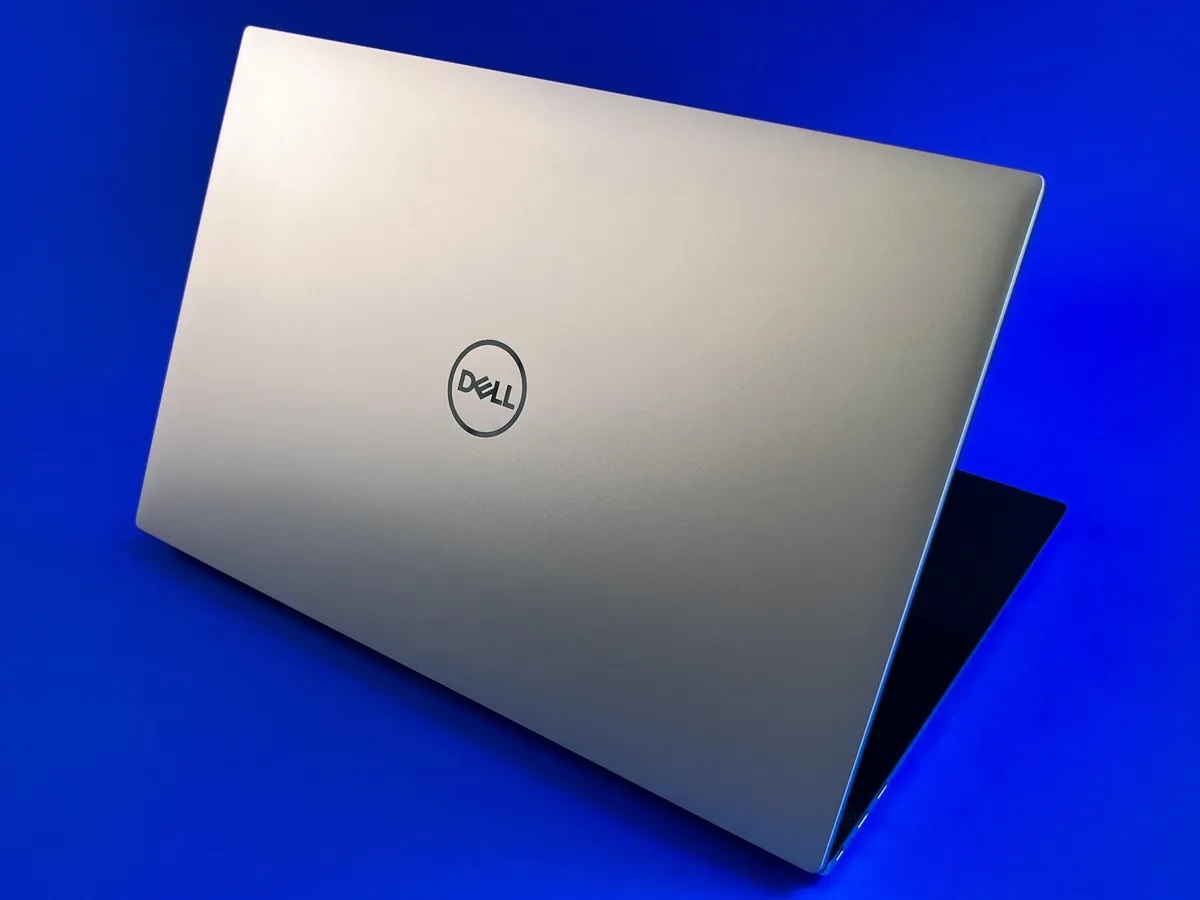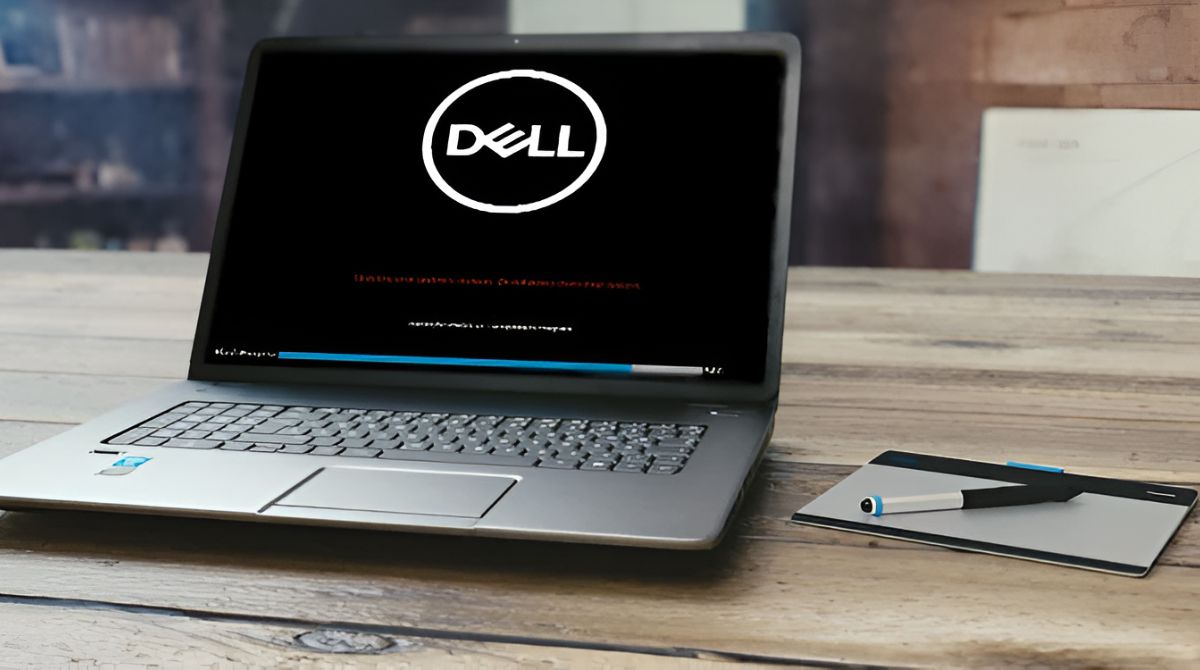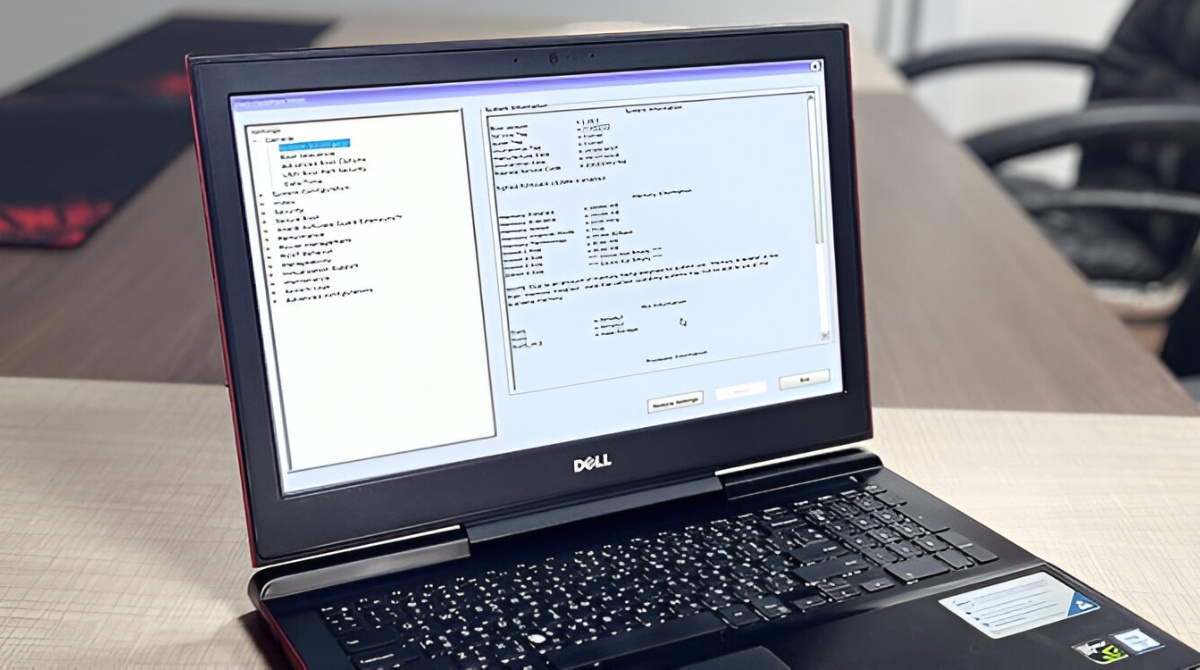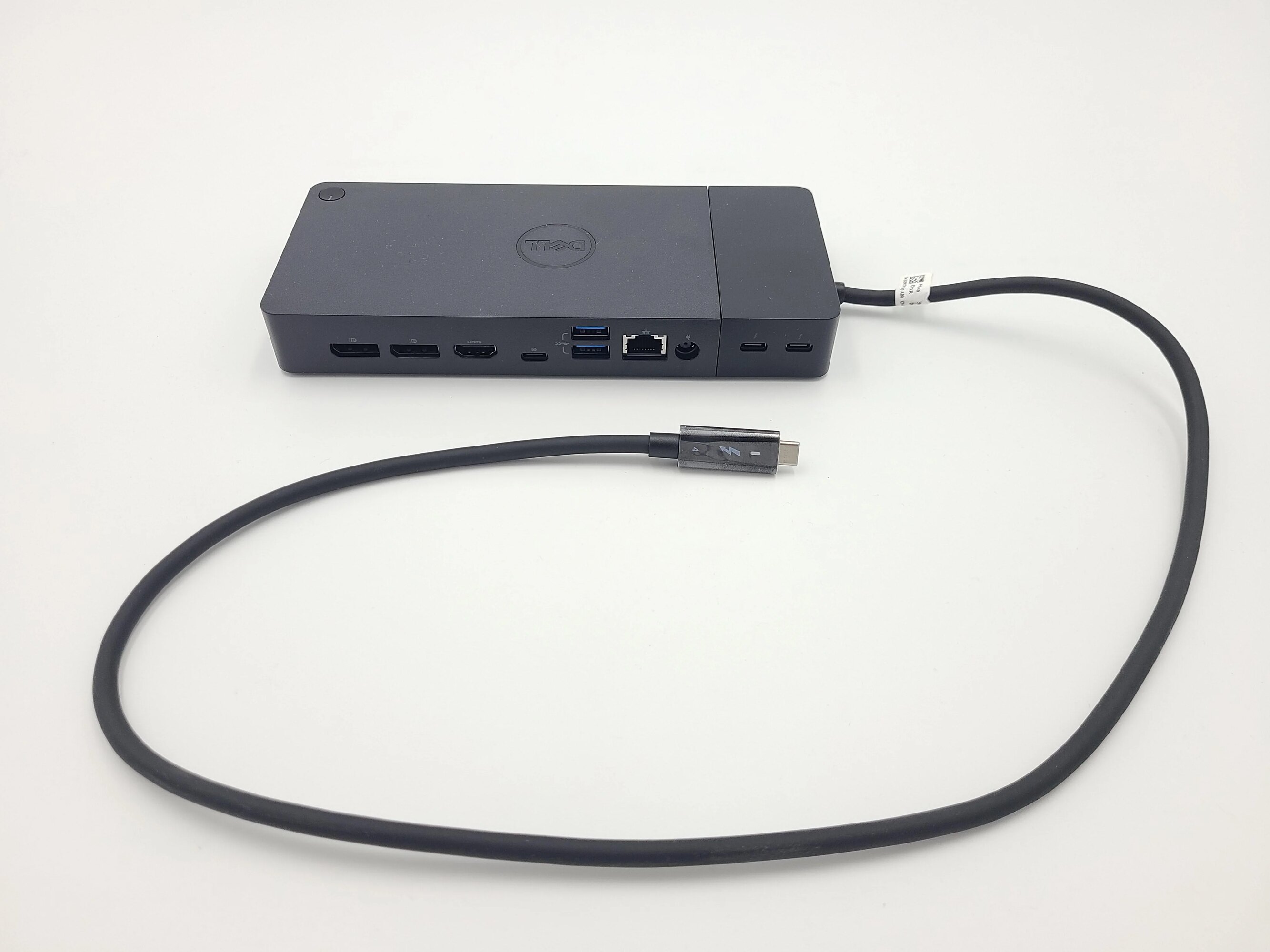Introduction
Welcome to the world of Dell, a global technology company that is known for its innovative products and services. With a rich history dating back several decades, Dell has established itself as a prominent player in the technology industry, catering to both individual consumers and businesses of all sizes. From its humble beginnings in a dorm room to becoming a multinational corporation, Dell has made a significant impact on the way we use and interact with technology.
Founded in 1984 by Michael Dell, the company initially started as a small-scale computer assembly operation. With a unique direct-to-consumer model, Dell cut out the middlemen and sold directly to customers, offering customizable personal computers at competitive prices. This approach allowed Dell to build a strong customer base and quickly gain momentum in the market.
Over the years, Dell expanded its product portfolio to include a wide range of devices and solutions. From laptops and desktops to servers and storage systems, Dell has consistently pushed the boundaries of innovation. Additionally, the company offers various software and services, ranging from cybersecurity solutions to data management tools, catering to the evolving needs of businesses in the digital age.
With its commitment to quality and customer satisfaction, Dell has earned a solid reputation for delivering reliable products and exceptional support. The brand’s dedication to customer-centricity has resulted in numerous awards and accolades, solidifying its position as a trusted name in the industry.
Dell’s impact on the technology industry extends beyond its product offerings. The company has played a crucial role in driving technological advancements and shaping the way we use technology in our daily lives. From introducing cutting-edge innovations like the Alienware gaming series to leading the way in sustainable and socially responsible business practices, Dell continues to be a trailblazer in the industry.
In the following sections, we will delve deeper into Dell’s history, its diverse range of products and services, its business model, and its commitment to sustainability. By exploring these aspects, we aim to provide a comprehensive understanding of Dell’s journey and its significance in the ever-evolving world of technology.
History of Dell
The story of Dell begins in 1984 when Michael Dell, a then 19-year-old pre-med student at the University of Texas, founded the company from his dorm room. His vision was to create affordable computers that were customizable to meet the specific needs of individual consumers.
What set Dell apart from its competitors was its unique direct-to-consumer business model. Instead of relying on traditional retail channels, Dell sold its products directly to customers, allowing for a more personalized buying experience. This direct approach not only reduced costs but also enabled Dell to gather valuable insights from its customers and quickly incorporate their feedback into future product designs.
With a newfound focus on efficiency and customer satisfaction, Dell experienced rapid growth throughout the 1990s. In 1992, the company went public and expanded its operations globally. By utilizing its efficient supply chain and manufacturing processes, Dell gained a competitive advantage in the market.
In the early 2000s, Dell further diversified its product portfolio, expanding beyond personal computers to devices such as laptops, servers, and storage systems. The company continued to innovate, producing cutting-edge technologies like the Alienware gaming series and revolutionizing the way businesses managed their IT infrastructure.
However, Dell faced some challenges in the mid-2000s. The company struggled to adapt to the changing landscape of the technology industry and faced increased competition from rivals. In response, Dell initiated a turnaround strategy, refocusing on its core business and improving operational efficiencies.
Under Michael Dell’s leadership, the company made significant investments in research and development, acquiring technology companies to expand its expertise and product offerings. This renewed focus allowed Dell to regain its competitive edge and solidify its position in the industry.
Today, Dell is a multinational corporation that operates in over 180 countries and employs thousands of people worldwide. The company continues to evolve and innovate, embracing emerging technologies such as artificial intelligence, cloud computing, and virtual reality.
The history of Dell is a testament to the power of innovation and customer-centricity. From its humble beginnings in a dorm room, the company has grown into a global technology leader, impacting the lives of millions of people around the world. Through its commitment to providing customizable, high-quality products, Dell has cemented its place as a trusted name in the technology industry.
Dell’s Products and Services
Dell offers a diverse range of products and services that cater to the needs of both individual consumers and businesses. With a focus on customization, quality, and innovation, Dell has become synonymous with reliable and cutting-edge technology.
One of Dell’s flagship product categories is personal computers, which includes a variety of laptops and desktops. Whether you’re a student, a professional, or a gaming enthusiast, Dell offers a wide selection of devices tailored to meet various requirements. From lightweight and portable laptops for on-the-go productivity to powerful gaming rigs for immersive gaming experiences, Dell has a computer for every need.
In addition to personal computers, Dell also offers an extensive range of servers and storage systems. These solutions are designed to meet the demands of businesses of all sizes, providing reliable performance, scalability, and security. Whether it’s a small business looking for a simple and efficient server solution or a large enterprise in need of high-capacity storage systems, Dell has the expertise and products to accommodate diverse requirements.
Furthermore, Dell provides various software and services to enhance productivity, efficiency, and security for businesses. This includes cybersecurity solutions to protect against online threats, data management tools to streamline operations and ensure data integrity, and cloud computing solutions to enable flexible and scalable IT infrastructure.
Aside from hardware and software, Dell also offers comprehensive support and services to ensure customer satisfaction. This includes technical assistance, warranty coverage, and on-site support options. Dell’s commitment to excellent customer service has made it a preferred choice for individuals and businesses alike.
Moreover, Dell has expanded beyond traditional computing devices to delve into emerging technologies. The company has made notable advancements in areas such as artificial intelligence, virtual reality, and edge computing. With a focus on innovation and staying ahead of the curve, Dell continues to push the boundaries of technology and explore new possibilities.
Dell also offers a range of solutions specifically tailored towards industries such as healthcare, education, and retail. This includes specialized hardware, software, and services that address the unique challenges and requirements of each sector, enabling organizations to optimize their operations and deliver better outcomes.
Overall, Dell’s product and service offerings encompass a wide spectrum of technology solutions that cater to diverse needs and industries. With a reputation for reliability, customization, and innovation, Dell continues to be a trusted partner for individuals and businesses seeking quality technology products and services.
Dell’s Impact on the Technology Industry
Dell has had a significant impact on the technology industry since its inception, revolutionizing the way we use and interact with technology. The company’s innovative approaches and customer-centric strategies have helped shape the industry and set new standards of excellence.
One of Dell’s most notable contributions is its direct-to-consumer business model. By bypassing traditional retail channels and selling directly to customers, Dell introduced a new way of purchasing technology products. This approach eliminated the need for intermediaries, allowing Dell to offer competitive prices and customized solutions to meet individual needs. This disruption in the distribution process forced other technology companies to reevaluate their strategies and consider new approaches.
Dell’s focus on customization and build-to-order manufacturing also had a profound impact on the industry. By allowing customers to choose the specifications and features of their computers, Dell empowered users to have more control over their technology. This approach challenged the notion of a one-size-fits-all approach and encouraged other manufacturers to offer more customizable options.
In addition, Dell’s commitment to quality and customer satisfaction has raised the bar for the technology industry. The company’s dedication to product reliability, robust customer support, and efficient supply chain management has set a standard that other companies strive to achieve. Dell’s emphasis on continuous improvement and innovation has also compelled competitors to innovate and deliver better products and services.
Furthermore, Dell’s acquisition of technology companies and investments in research and development have contributed to advancements in the industry. By combining internal expertise with external talent, Dell has been able to develop cutting-edge technologies and offer solutions that address evolving customer needs. This commitment to innovation has helped drive progress in areas such as cloud computing, data management, and cybersecurity.
Moreover, Dell has made sustainability and social responsibility a priority. The company has implemented various initiatives to reduce its environmental footprint, including responsible recycling programs and energy-efficient manufacturing processes. Dell’s commitment to sustainability has not only made it a leader in environmental stewardship but has also influenced other technology companies to adopt more eco-friendly practices.
Overall, Dell’s impact on the technology industry is far-reaching. The company’s innovative business model and commitment to customer satisfaction have challenged the status quo and forced other players in the industry to adapt and improve. Dell’s pursuit of excellence, customization options, and contributions to sustainability have made it a trailblazer in the technology industry and have significantly influenced the way we use and perceive technology today.
The Dell Business Model
Dell’s business model has been a key factor in the company’s success and has set it apart from its competitors in the technology industry. The company’s unique approach, known as the direct-to-consumer model, has revolutionized the way computers and other technology products are sold and has played a significant role in Dell’s growth and profitability.
At the core of Dell’s business model is the concept of selling directly to customers. Unlike traditional computer manufacturers that rely on intermediaries, such as retailers, Dell bypasses these channels and sells its products directly through various channels, including the internet, phone orders, and company-owned retail stores. This direct approach eliminates the costs associated with middlemen and allows Dell to offer competitive prices to its customers.
Another key element of Dell’s business model is its focus on customization. Recognizing that different customers have diverse needs and preferences, Dell offers a build-to-order model, allowing customers to customize their computers and select the specifications, features, and software that best suit their requirements. This customization capability has been a major selling point for Dell, giving customers the flexibility to create a personalized computing experience.
Furthermore, Dell’s business model emphasizes supply chain efficiency and optimization. By closely managing its supply chain, Dell reduces costs, minimizes inventory, and enhances operational efficiency. This approach allows the company to quickly respond to changing market demands and incorporate customer feedback into future product designs.
Dell’s direct relationships with its customers also provide valuable insights and feedback that drive product development and innovation. Through customer interactions and feedback, Dell is able to anticipate customer needs, identify emerging trends, and develop products that align with market demands. This customer-centric approach has helped Dell stay ahead of its competitors and maintain its reputation for delivering high-quality products.
Moreover, Dell’s business model extends beyond hardware sales. The company has diversified its offerings to include software and services that complement its hardware products. By providing a comprehensive range of solutions, Dell caters to the evolving needs of businesses and individuals in a rapidly changing technology landscape.
In summary, Dell’s business model, based on direct-to-consumer sales, customization, supply chain efficiency, and customer-centricity, has been instrumental in the company’s success. By eliminating intermediaries, offering personalized products, and optimizing their manufacturing and supply chain processes, Dell has been able to provide high-quality technology solutions at competitive prices. The company’s ability to adapt to customer needs, innovate, and forge direct relationships with its customers has allowed it to maintain a strong position in the technology industry.
Sustainability and Social Responsibility at Dell
Sustainability and social responsibility have always been at the forefront of Dell’s operations. As a global technology company, Dell recognizes the importance of minimizing its environmental impact, promoting responsible practices, and positively contributing to society. Through various initiatives and programs, Dell has demonstrated its commitment to sustainability and social responsibility.
One of Dell’s primary focuses is environmental responsibility. The company has implemented numerous measures to reduce its carbon footprint, conserve energy, and promote responsible manufacturing. Dell aims to achieve its ambitious goal of reducing its greenhouse gas emissions by 50% by 2030. To work towards this target, Dell has invested in energy-efficient technologies, adopted renewable energy sources, and implemented recycling programs to reduce electronic waste.
Furthermore, Dell is dedicated to responsible recycling practices. The company offers recycling programs in many countries, allowing customers to safely dispose of their electronic waste. Dell strives to minimize the environmental impact of its products throughout their lifecycle by incorporating sustainable materials, designing for recyclability, and encouraging customers to participate in recycling initiatives.
Dell also takes social responsibility seriously. The company is committed to ethical business practices and upholds high standards of integrity and fairness. Dell’s Supplier Code of Conduct outlines its expectations for suppliers, including compliance with legal and ethical requirements, labor and human rights, and environmental stewardship. By working closely with its suppliers, Dell aims to promote fair and responsible practices throughout its supply chain.
Moreover, Dell actively engages in community outreach and philanthropic efforts. Through its social impact initiatives, Dell supports various causes and communities around the world. The company believes in using technology as a tool for positive change, and it invests in programs that promote digital inclusion, education, and entrepreneurship. Dell also encourages its employees to contribute their time and expertise through volunteer programs, further strengthening the company’s commitment to social responsibility.
Dell’s dedication to sustainability and social responsibility has not gone unnoticed. The company has received numerous accolades and recognition for its efforts, including being named to the Dow Jones Sustainability Index and achieving high rankings in corporate social responsibility rankings.
Overall, Dell’s commitment to sustainability and social responsibility goes beyond mere compliance. The company endeavors to make a positive impact on the environment and society by incorporating responsible practices throughout its operations. Through its environmental initiatives, ethical business practices, and community involvement, Dell sets an example for other companies and works towards a more sustainable and inclusive future.
Dell’s Competitive Advantage
Dell has consistently maintained a competitive advantage in the technology industry through a combination of factors that differentiate it from its competitors. These factors have contributed to Dell’s success and have allowed the company to establish a strong market presence.
One of Dell’s primary competitive advantages is its direct-to-consumer business model. By selling directly to customers, Dell bypasses intermediaries, reduces costs, and maintains direct relationships with its customer base. This direct approach enables Dell to offer competitive prices and deliver customized products tailored to individual needs. By eliminating the middlemen, Dell can respond quickly to customer demands, incorporate customer feedback, and make necessary adjustments to its products and services.
Additionally, Dell’s focus on customization sets it apart from its competitors. The company offers a wide range of options for customers to personalize their technology products, from choosing specific hardware components to selecting software and features tailored to their needs. This customization capability has been a major selling point for Dell, attracting customers who value the ability to create a unique computing experience.
Dell’s strong reputation for reliability and customer satisfaction is also a significant competitive advantage. The company’s commitment to quality is evident in its rigorous testing procedures and focus on delivering high-quality products. Dell’s dedication to customer support and after-sales service further enhances its reputation, providing customers with peace of mind and solidifying their trust in the brand.
Furthermore, Dell’s expertise in supply chain management and operational efficiency gives it a distinct competitive edge. The company has refined its manufacturing processes and supply chain to ensure timely delivery and cost-effective operations. By optimizing its supply chain, Dell minimizes inventory and reduces distribution costs, allowing for faster turnaround times and competitive pricing. This efficient approach gives Dell a competitive advantage over competitors who may face challenges in terms of cost control and supply chain optimization.
Another area where Dell excels is its ability to adapt and innovate in a rapidly changing technology landscape. The company invests heavily in research and development, continuously exploring emerging technologies and trends. Dell’s acquisitions of technology companies and partnerships with industry leaders allow it to stay at the forefront of innovation and offer cutting-edge solutions to its customers.
Moreover, Dell’s strong focus on sustainability and environmental responsibility provides a competitive advantage in today’s environmentally conscious market. The company’s commitment to reducing its environmental footprint, offering sustainable products, and promoting responsible manufacturing practices resonates with customers who prioritize sustainability and ethical considerations.
In summary, Dell’s competitive advantage lies in its direct-to-consumer business model, customization options, reliability, operational efficiency, innovation, and sustainability initiatives. These factors have helped Dell differentiate itself in the technology industry, attract and retain customers, and maintain a strong market position.
Future Outlook for Dell
The future outlook for Dell is promising as the company continues to adapt and innovate in response to the ever-changing technology landscape. With its strong foundation, commitment to customer satisfaction, and focus on emerging technologies, Dell is poised to capitalize on new opportunities and maintain its position as a leader in the industry.
One of the key areas of growth for Dell is in the realm of emerging technologies. The company’s investments in research and development enable it to explore and develop solutions in areas such as artificial intelligence, virtual reality, and edge computing. By staying at the forefront of technological advancements, Dell is well-positioned to provide cutting-edge products and services that meet the evolving needs of customers.
Additionally, Dell is actively capitalizing on the increasing demand for cloud computing solutions. The company offers a range of cloud-based services, including infrastructure-as-a-service (IaaS), platform-as-a-service (PaaS), and software-as-a-service (SaaS). As businesses continue to embrace cloud computing for its scalability and flexibility, Dell’s expertise and comprehensive solutions in this area position the company for continued growth.
The continued focus on sustainability and environmental responsibility is also expected to play a significant role in Dell’s future. As more customers prioritize sustainable practices, Dell’s commitment to reducing its environmental impact and offering sustainable products will resonate with eco-conscious consumers. The company’s initiatives in areas such as responsible recycling and energy-efficient manufacturing will likely attract new customers and drive loyalty among existing ones.
Furthermore, Dell’s strong emphasis on customer satisfaction and support will continue to be a driving force for success. With its dedicated customer service and technical assistance, Dell ensures that customers have a positive experience throughout their interactions with the brand. This customer-centric approach will contribute to customer loyalty and advocacy, further strengthening Dell’s market position.
In terms of market expansion, Dell has been actively exploring opportunities in emerging markets and expanding its global reach. By forging partnerships and alliances with regional players, Dell aims to penetrate untapped markets and cater to the unique needs of different regions. This strategic approach allows the company to unlock new growth opportunities and reach a wider customer base.
In summary, the future outlook for Dell is bright. The company’s focus on emerging technologies, cloud computing, sustainability, customer satisfaction, and global expansion positions Dell for continued success. By staying ahead of technology trends, embracing sustainability, and providing exceptional customer experiences, Dell will continue to be a leader in the technology industry and meet the evolving needs of customers around the world.
Conclusion
Dell has undoubtedly made a significant impact on the technology industry through its innovative products, customer-focused approach, and commitment to sustainability. From its inception as a small-scale operation in a dorm room to becoming a global technology leader, Dell has consistently pushed boundaries and set new standards of excellence.
The company’s direct-to-consumer business model has revolutionized the way technology products are sold, offering customers personalized, customized solutions at competitive prices. Dell’s emphasis on customization and build-to-order manufacturing has allowed it to cater to diverse customer needs and preferences.
Dell’s commitment to environmental responsibility and sustainability has also been commendable. The company’s initiatives to reduce its carbon footprint, promote responsible recycling, and develop sustainable products have set an example for the industry and resonated with eco-conscious consumers.
Moreover, Dell’s focus on customer satisfaction has been a cornerstone of its success. The company’s dedication to quality, reliable support, and direct customer relationships has earned it the trust and loyalty of millions of customers worldwide.
Looking ahead, Dell’s future outlook remains bright. With its continued investment in research and development, Dell is poised to capitalize on emerging technologies and provide cutting-edge solutions to meet evolving customer needs.
The company’s expansion into cloud computing services, global market reach, and focus on sustainability position it for continued growth and success. By staying agile, innovative, and customer-centric, Dell is well-equipped to navigate the dynamic technology landscape and maintain its position as a leader in the industry.
In conclusion, Dell’s journey from a dorm room startup to a global technology powerhouse is a testament to its unwavering commitment to innovation, customer satisfaction, and sustainability. As technology continues to evolve, Dell’s ability to adapt, embrace emerging trends, and deliver exceptional products and services will ensure its continued success in the years to come.

























